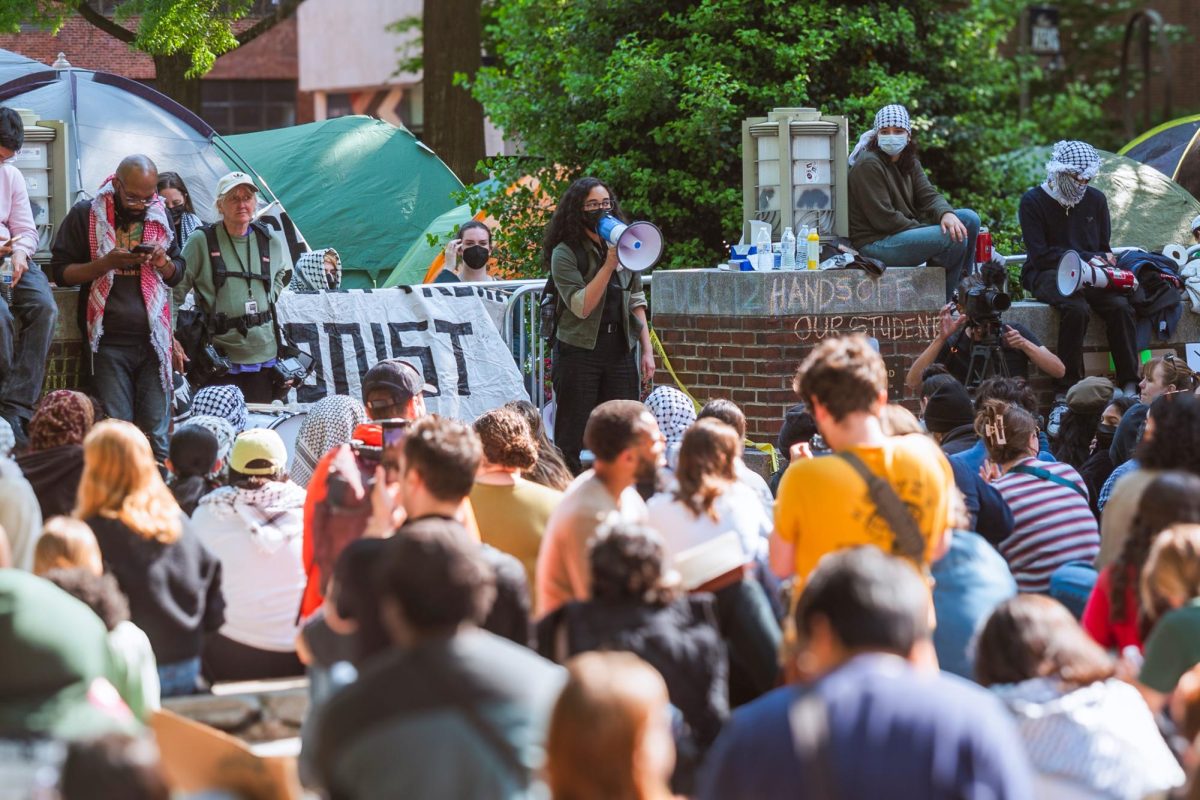The city may replace the zone fare system used by District cabs with meters if the D.C. Taxicab Commission and City Council approve a new proposal. The measure is tabled until March, when the commission will decide whether to pass the proposal onto the City Council.
Washington was divided into eight fare zones in 1931. Today, passengers pay a $5 flat rate for fares within the same zone. Moving from one zone to the next means paying an average of $1.50 extra, although the exact amount varies depending on how many zone borders are crossed.
The mayor withdrew a meter proposal, presented to Taxicab Commissioner Lee Williams, in January. The proposal is pending a feasibility study on the issues.
In the past, politicians and lobbyists have opposed efforts to change to the meter system. D.C. Taxicab Commission legal advisor Kimberly Lewis said, “the tide is beginning to turn” in favor of change as political leaders show concern that the nation’s capitol’s cab system will fall behind other cities.
Meters might offer a better fare to those who regularly travel short distances and cross several zones. There has been little government movement toward changing the system, as most government buildings are located in a single zone.
“(Government opposition) was true years ago, when most politicians lived in the District. Now they live here as well as in other places,” Williams said. “(Politicians) are more concerned with tourism and, since tourists prefer meters, their attitudes have changed.”
Many students said they find the zone system “antiquated” and other District cab rules bewildering.
Freshman Lauren Posten admitted she is “confused” by the zone system and that she sometimes has to share a ride with a stranger since cab drivers are allowed to pick up additional passengers as long as they are travelling within five blocks of each other.
“It’s not like that in Miami,” Posten said.
Sophomore Xavier Manrique believes that it is all a matter of “getting used to it.”
“Once you know where one zone ends and the other begins, you save yourself some money getting around,” he said.
Junior Francisco Jaar said he prefers to take public transportation because of pricey zone costs.
“If you don’t know your way around, you might end up paying more for not crossing a street or get taken through longer routes,” Jaar said. “It’s useful to be familiar with the bus system and the Metro because (they are) sometimes cheaper than cabs.”
I.H. Kamara, a D.C. cab driver for 25 years, is aware of the competition he faces from the other options in transportation. He said he opposes meters and higher fares in fear of losing customers to the bus and Metro.
There are other reasons why Kamara would rather stick with the zones.
For one thing, he said, he believes the surcharges for making a driver wait, carry luggage inside the cab and travel during rush hour make the zone system work well for drivers.
“The city is not wide enough for meters to be profitable,” Kamara said. “The blocks are short and there is no way to make $25 on a single fare with a meter unless there is heavy traffic.”
Independent driver William Henderson, who has been working off and on for 30 years, recalls how several years ago Councilwoman Carole Schwarz fought to put meters in D.C. cabs and charge the drivers a 15 percent tax.
“Drivers have no problem with meters, but nobody wants taxes or harassment from the city,” Henderson said. “You also have to keep in mind that meters break down and have to be repaired.”
Lewis, the Taxicab Commission lawyer, said cab drivers’ attitudes toward the meter system often depend on the driver’s age.
“Older drivers tend to be opposed to meters, whereas younger drivers see them as a way to equal out,” she said.
Commissioner Williams said money concerns dominate driver complaints.
“Some cab drivers are afraid that if they use meters, the government will be able to track every single penny they make and charge them an income tax,” Williams said. “This is simply not true. It’s impossible to do
that.”
Har Pal S. Phour, who has worked with the Atlantic Cab Co. for 10 years, said he favors meters.
“I believe they would allow a fair exchange between drivers and passengers,” Phour said.
As far as the political reasons to maintain the zone system, Phour said, “most politicians are well-to-do and can afford paying a few dollars extra for some fares if meters were used.”







